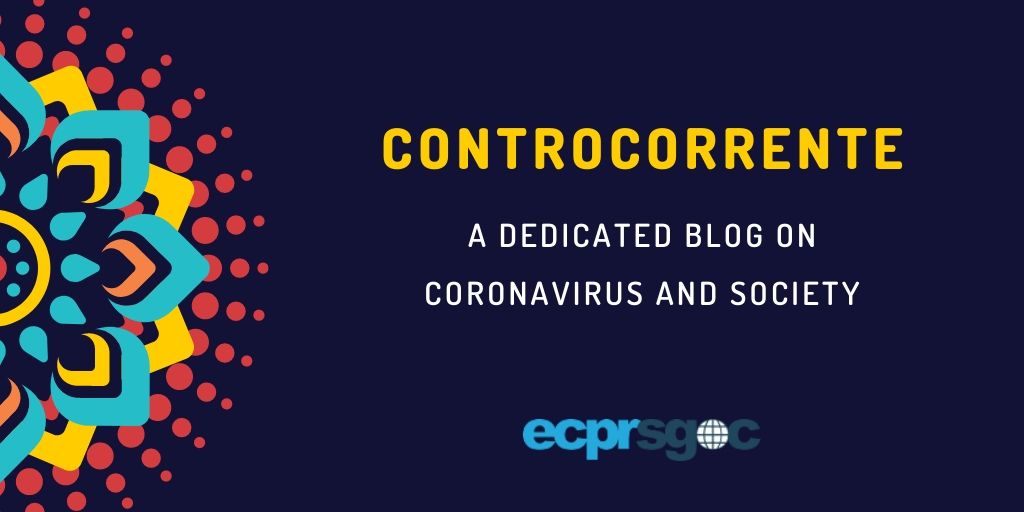
The COVID-19 pandemic and the epidemic of rights violations in Brazil – the alarming state of prisons
Sérgio Adorno – USP, Brazil
Camila Nunes Dias – UFABC, Brazil
Although the Coronavirus pandemic has generated impacts worldwide, its effects may be more perverse in some countries, and certainly so for the most vulnerable segments of the population. In Brazil, the deep social inequalities that structure society, as well as the current political situation – marked by a government without the capacity to put measures in place to prevent and confront the health crisis and the economic crisis – only serve to aggravate the pandemic. And the country faces an additional challenge in the behavior of its current president, who repeatedly discredits scientific knowledge and the technical and medical protocols suggested by the WHO and which have been adopted in many countries.
Brazil can be said to be experiencing a “perfect storm,” wherein several crises converge: a) an economic crisis that was already present before the pandemic and that most likely will deepen, without any adequate responses expected from the Government to put policies in place capable of reducing its effects; b) a political crisis that has dragged on since 2016, marked by a profound ideological divide in the country, with increased activities by far-right groups that have been consolidating thanks to support from the Jair Bolsonaro administration; and c) the health crisis caused by the Coronavirus pandemic, whose main prevention protocol, that of social isolation, has faced numerous obstacles to its implementation in the country. Brazil’s current President has consistently questioned the efficacy of the measure, calling instead for people to return to work. For citizens in lower-income socioeconomic strata, the obstacles to ensuring their isolation were immense. In addition to horrible housing conditions, with a large number of people occupying the same unit, the economic aid provided by emergency assistance programs was insufficient to allow a greater number of people to observe the proper health protocols.
Amid this scenario of strong mistrust of political institutions, the questioning of scientific knowledge by government officials, and the widespread proliferation of fake news, many communities where poverty predominates – the communities most affected by Covid-19 cases and with a greater number of deaths – have mobilized to raise awareness among residents about the importance of social isolation and of personal hygiene measures to prevent the spread of Covid. Collectives have been formed in many locations to gather food and hygiene and cleaning products for distribution, hoping to minimize the suffering of millions of people who saw a staggering drop in their incomes. Collective actions have also been organized to inform the population about the importance of adopting new social and individual habits, such as wearing a mask, avoiding crowds, and washing hands frequently.
Among those segments of the population most vulnerable to the effects of the pandemic, the prison population stands out. Brazil ranks third globally in terms of the total number of people deprived of their liberty, currently reaching the mark of 750,000 prisoners. The vast majority of prisons in the country are overpopulated, and in these prisons the structural and material conditions that allow for collective existence are in a precarious state, as are the assistance services provided by the government. This current scenario is the latest crisis in Brazil’s chronic lack of civil servants in relation to the number of prisoners, which has motivated criminal groups to take the lead in the daily management of prisons during the last 20 years. These criminal groups organized themselves to regulate and mediate conflicts arising from interactions between prisoners and prison staff and the relationships between prisoners themselves.
In mid-March, in the wake of social distancing measures announced by state governments, there was some uncertainty about what procedures would be adopted in the prison system to prevent the spread of the disease. The tremendous concern shown by human rights organizations and prisoners’ family members is justified. The unhealthy and overcrowded environment of prisons, the fragile state of health that is common among prisoners, the poor food and hygienic conditions in prisons – all of these have combined to produce a potentially catastrophic scenario in the face of the pandemic.

Brazil’s National Council of Justice (CNJ) recommended some measures to reduce the prison population, encouraging house arrest and accelerating parole for prisoners who are in high-risk groups and who were not convicted of violent crimes. However, the situation in prisons has not changed. In order to prevent the spread of COVID-19 within prisons, the main measures adopted by state governments consisted of suspending prison visits and barring prisoners in Semi-Open Regimes from leaving to work during the day. Although preventive measures are important, the measures that were adopted have important impacts on the prison population, further aggravating the penalty of being deprived of liberty. First, by depriving them of family contact; and second, and just as importantly, by depriving them of the food that family members take to their imprisoned relatives during visits. In Brazil, these visits are essential for reducing the chronic scarcity of food and basic hygiene items in prisons, as well as for lessening the impact of the very low quality of these services in prison environments. Therefore, suspending these visits means serious and profound consequences, both direct and indirect, that exacerbate the suffering of people deprived of their liberty and deepen the violation of their rights.
Nevertheless, despite the suspension of visits and the intensification of restrictions imposed on prisoners, Brazil has seen a troubling number of prisoners being diagnosed with COVID-19 in several states, with an equally alarming number of deaths. Despite some underreporting and the low reliability of data coming from the prison system, by June 17, 2020, the country had reportedly carried out 8,924 tests, resulting in 2,351 confirmed cases of prison contamination and 50 prisoner deaths from COVID-19.
There are reports of prisoners writing letters to their families where they describe their concern about the local situation and about the lack of isolation for contaminated prisoners. They question whether the government has turned a blind eye to the spread of Covid-19 in prisons, with some prisons registering rates of Covid infection well above the general average. So far, the prison population has seemed to understand the seriousness of the situation, facing the restrictions imposed without any reaction. However, this scenario may change. The prolongation of the pandemic over an uncertain period is likely to increase tension in prisons, turning the internal dynamics and relationships between prisoners and employees more acute and more contentious.
Authiors:
Sérgio Adorno – Professor, Department of Sociology (USP) and Coordinator of the Center of the Study of Violence, a Center of Research, Education, Innovation and Dissemination of FAPESP (São Paulo Research Foundation)
Camila Nunes Dias – PhD in sociology, Professor at UFABC and researcher at the Center of the Study of Violence at USP (NEVUSP)
***
This blog aims to reflect the opinions, thoughts, and concerns of academics and researchers related to COVID-19. All views belong to authors and it does not represent the views of any organisation.

